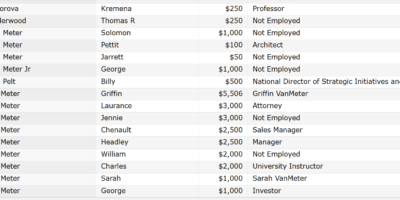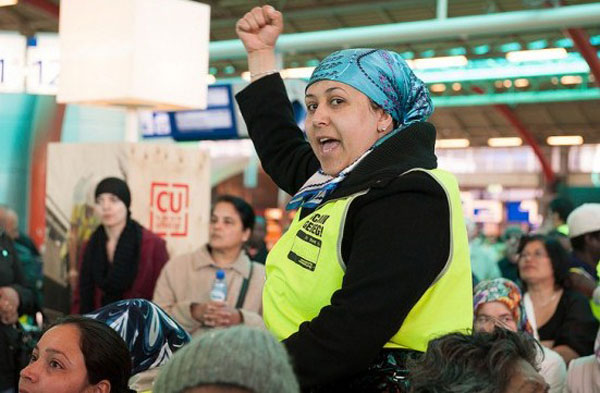Update on FNV Bondgenoten
By our man in Amsterdam
In the March issue of NoC, I wrote about an important struggle happening in the Netherlands. This struggle is centered around a strike by the Dutch cleaners union (FNV Bondgenoten) over declining wages, increased workloads and cuts in benefits. When that column was written, the strike was in its twelfth week and was already the longest strike in the Netherlands since 1933. The cleaners provide janitorial services at universities, train stations, airports, hospitals, and a number of major corporations.
The strike is remarkable not only for its duration, but also for its innovative strategy of solidarity building and militant direct action. The cleaners joined forces with students and faculty upset over cuts to higher education, as well as other public employees facing job losses and wage cuts. In the process they organized two 24-hour occupations of two different universities, which put tremendous pressure on university administrators to demand that the cleaning companies respect their workers and on the government to reverse austerity measures that are gutting treasured public services and contributing to declining wages. The cleaners’ demand for ‘respect and a pay raise’ as well as their demonstrations of solidarity with other workers and students has generated tremendous public sympathy and provided a much-needed boost of adrenaline to Dutch labor movement.
After 105 days, ten “Marches for Respect,” two university occupations, and tireless campaigning, the strike has ended in a major victory not only for the cleaners, but also for the entire Dutch trade union movement and for working people across the Netherlands. The victory includes a 4.85% salary increase, better training, regular assessments of the workload (and rate of work), greater security for temporary workers, and a commitment by the employers to improve sick pay benefits. The cleaners’ victory constitutes one of the most significant labor victories in the Netherlands in decades.
And how did they succeed? They succeeded through organization, agitation, solidarity, direct action, and a strike that cut significantly into the profits of the employers and contractors that were exploiting them. If working people, whether in the Netherlands, the US, or anywhere else are going fight back against the class war being waged against them, it is going to require bold, direct forms of action like these. It is time to rediscover the power of the strike.





Leave a Reply